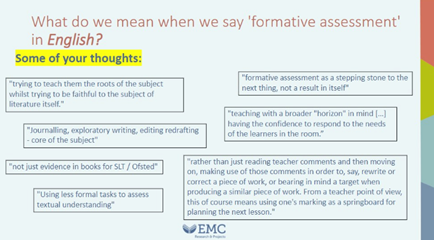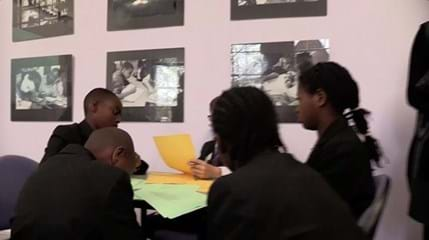Whether it involves spotting a clue in the misspelling of a simple word in a TV drama like Line of Duty or discovering how someone has assumed another person’s linguistic identity in a grisly, real-life crime, forensic linguistics is an aspect of language study that can really fire the imagination and be put to important practical use.
We all know that A Level English Language, somewhere down the line, has to involve close, detailed attention to linguistic structures and patterns, often involving text analysis and exploring what language choices mean, but forensic linguistics takes that all in a different direction: it uses that in-depth grasp of style, spelling, syntax and even sound patterns to work out who might have produced a text (authorship analysis), helping investigators assume an identity (authorship synthesis) and apply it to legal and criminal contexts. In practice, what forensic linguists do can be extremely varied: from trademark disputes and figuring out the possible intentions of threatening communications to deciphering poor quality audio in surveillance footage and identifying predators on the dark web.
At the EMC we have long been fans of forensic linguistics. It's an aspect of language study that can really motivate and engage students, in our experience, and one that shows the huge range of future study and employment that can be linked to language study at A Level and beyond, often in fields and jobs that most people would not be aware of. It’s also something that showcases the differences between GCSE and A Level and can be a great recruiting tool!
We included a taster activity in our free Leaping into Language download in 2020, along with an extended set of activities in our KS3 Language Laboratory publication, so give these a go if you want to give your KS3 or KS4 students a taste of proper language study! You can also get a sense of how easily this can be incorporated into your usual teaching with the other activities in the Language Laboratory. On top of this, in the second of our free online conferences for Year 10 and 11 students, Looking into Language 2, we featured a talk by Claire Hardaker from Lancaster University about the work she has been doing in the field. You can see that here. Claire’s podcast En Clair is an excellent way to find out more about the field and some of the ways it has been used over the years. And if you want to learn more about it, Claire is organising a summer school that looks perfect for teachers at the end of July: Language, Speech and AI.
We have also worked with other forensic linguists: Dawn Archer at Manchester Metropolitan University spoke at our first Macclesfield conference in 2023, while Tim Grant at the Centre for Forensic Linguistics at Aston University has spoken at previous emagazine conferences in London (a recording of part of one is available here, with more available through your emagazine log in ), and Nicci MacLeod (also of Aston University) wrote a chapter in the second edition of our Language Handbook. More recently, both Tim Grant and Nicci MacLeod have collaborated on a new podcast – Writing Wrongs – which is all about forensic linguistics.
If you’re looking for ways to entice students onto the A Level English Language course, to fire up students’ imaginations for their Language Investigations in Year 13, or just for a bit of post-exams summer term fun, forensic linguistics can be a great way to show how language study doesn’t just stop with exam-style texts but can be applied to the real world. And if you want to mug up on what’s going on in the field now, get signed up to Claire Hardaker’s summer school at Lancaster University.






